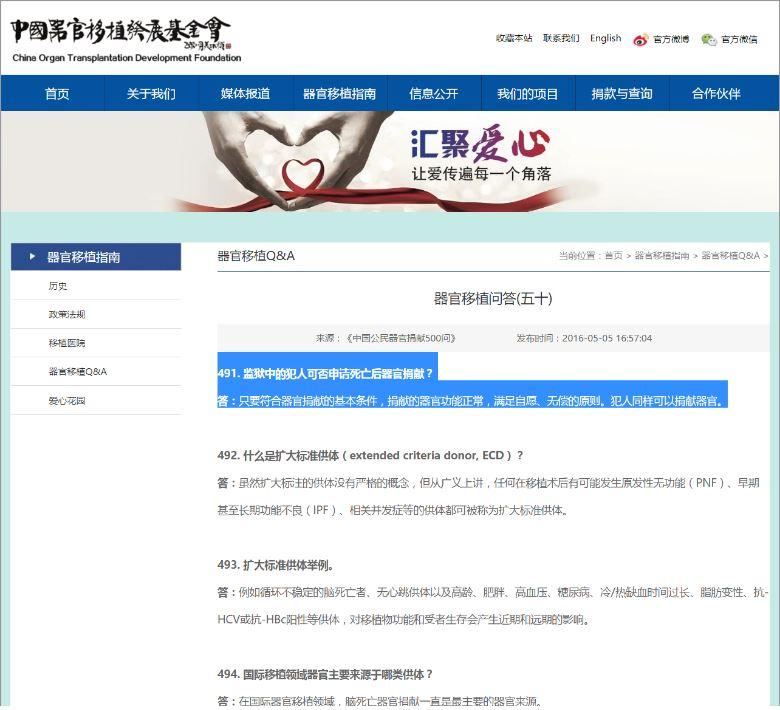China’s organ transplantation authorities may be taking a leaf from the public relations playbook of current U.S. presidential candidates: If you make a stumble, just pretend like nothing happened.
This, at least, would be a potential explanation for the silent substitution of the 491st question in the 500 “Frequently Asked Questions” on the website of China’s Organ Transplantation Development Foundation, a state-linked agency promoting voluntary donation.
In early August, the question asked was: “Can prisoners in jail apply to donate their organs after death?”
The answer: “As long as they meet the basic requirements of organ donation, the organ function is normal, they are willing, and there is no compensation, prisoners can all the same donate organs.”
The existence of the question and answer was, in the first place, a bizarre and public contradiction of the officially stated policy of the Chinese authorities on organ transplant reform. It was first noted in an American Journal of Transplantation article last month, whose authors added that it had the effect of “making the practical strength of any changes questionable.”
China’s organ transplantation spokesperson, Huang Jiefu, has since December 2014 been promising that no more organs would be sourced from death row prisoners.
It remained unclear just why a question on China’s own semi-official website, belonging to the foundation run by Huang, would flatly contest his own public promises.
But it seems the answer to that question will now remain a mystery. Sometime later in August, after Epoch Times brought the aberrant Q-and-A to the attention of several Chinese and Western doctors, it was replaced.
“Will information about donations be widely reported by the media?” the new one asked. (No, is the answer.)

Yet the question of whether or not death row prisoners are still being used as an organ source remains unanswered. China, after all, has passed no new law banning the use of organs from prisoners, and nor have they rescinded the 1984 regulations that first gave the legal opening for their use.
An email to the foundation requesting comment was not immediately returned.
The failure to make these promised changes has led the international transplantation community to sour on endorsing China’s system, and led to public rebukes from the former head of The Transplantation Society at a major conference in Hong Kong last month.
Meanwhile, attention continues to focus on whether the primary source of organs all along has not been death row prisoners, as China claims, but instead extrajudicially executed prisoners of conscience—primarily practitioners of Falun Gong, a spiritual discipline that has been targeted for elimination since 1999.
The U.S. House of Representatives passed a resolution condemning this practice in June, documentaries on the subject are winning prestigious awards, and the issue has been prominently raised in a number of recent reports in The New York Times.
On that topic, Chinese authorities have provided even less explanation than the deleted question. “Ridiculous!” was all Huang Jiefu, a former vice health minister, could muster at the recent Hong Kong conference, declining to address hundreds of pages of detailed evidence that researchers say documents the practice.





